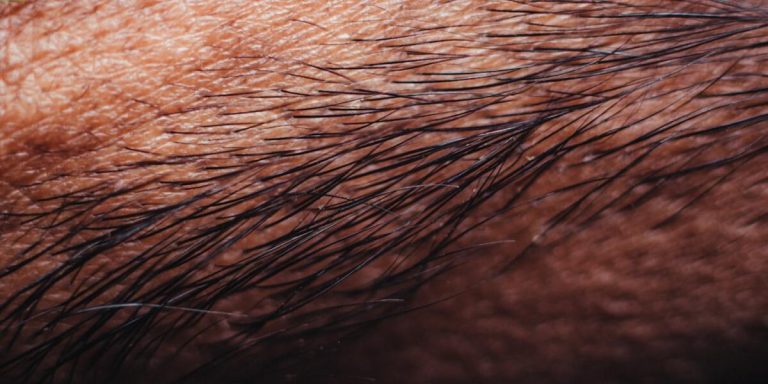Can Prednisone Cause Hair Loss: Unveiling the Truth Behind This Common Concern
Many individuals wonder, “can Prednisone cause hair loss?” This question has become increasingly common as the number of people using this drug for various health conditions skyrockets. Prednisone, a potent anti-inflammatory medication primarily used to suppress the immune system and relieve symptoms associated with certain allergic reactions, autoimmune diseases, and cancers can sometimes come with unexpected side effects.
One such concern that lurks in the minds of patients is its potential link to hair loss. Our tresses are not only an aesthetic ornament but also often tied closely to our identity and self-perception. Losing them unexpectedly could trigger deep anxiety; hence it becomes vital to understand whether medications like Prednisone might be stealing their strength away prematurely.
Did you know?
Little known fact: Prednisone, commonly prescribed for conditions like asthma and arthritis, could indeed contribute to hair loss. This occurs as the drug may disrupt hormonal balance and protein synthesis necessary for hair growth.
Understanding the Relationship Between Prednisone and Hair Loss
Prednisone, a widely prescribed corticosteroid medication, is commonly known for its anti-inflammatory benefits. However, increasing anecdotal evidence suggests that usage could be linked to hair loss in some individuals. The exact connection between prednisone and thinning or shedding of hair isn’t straightforward; it primarily revolves around the drug’s systemic effects on the body’s hormonal balance.
The body naturally produces steroids similar to Prednisone which play vital roles including maintaining healthy skin and hair growth cycle. When introduced externally through medication like Prednisone, these levels may get disrupted leading to variations in usual bodily functions such as cell regeneration process instrumental for follicular health. It can trigger telogen effluvium – a condition where more hairs than normal prepare to fall out.
Exploring How Corticosteroids Impact Follicular Health
One may rightly question: can prednisone cause hair loss? To find an answer we dive into medical research and recent studies.
Prednisone has indeed been associated with various side effects ranging from physical changes like weight gain or skin thinning to more serious issues including mood swings or hormonal imbalance. It’s within this spectrum of adverse reactions that we discover its potential impact on your follicular health.
Several reports suggest short-term usage might result in temporary shedding while others indicate prolonged use could lead to permanent damage – all dependent on the individual’s physiological response and dosage level though. This suggests understanding the correlation isn’t quite black-and-white but rather lies somewhere along shades of gray; nuanced by many variables at play concurrently.
Most people experience some degree of ‘telogen effluvium’ – a state where significant stress (in this case introduced by strong medicine) forces more hairs than usual into the resting phase leading eventually their fall out en masse after a few months.
But fear not! If you’ve noticed unusual hair loss during your treatment, it doesn’t necessarily mean you’re destined for baldness just because you’re taking Prednisone right now!
Assessing Temporary vs. Permanent Hair Loss Post-Prednisone Treatment
Prednisone, a common medication used in treating various conditions like autoimmune diseases and allergies can sometimes lead to hair loss. While this is generally considered temporary and reversible once the treatment stops, it’s crucial for individuals on prednisone therapy to understand how this side effect breaks down; shedding light on whether “can prednisone cause hair loss” holds truth.
Primarily, doctors prescribe Prednisone as an anti-inflammatory or immunosuppressant drug. As with most steroidal drugs, Prednisone has possible side effects – one of which may include alopecia or hair thinning in certain people. However, not every person taking Prednisonewill experience these adverse symptoms but understanding its potential impact provides reassurance when changes occur.
1) Dosage and Duration – Higher doses over extended period increases chances of experiencing pronounced side effects such as significant hair loss.
2) Individual Reactions – Each body reacts differently to medications due considerations like overall health status,biochemical makeup,and genetic factors that determine responses towards particular medicines including susceptibility towardssideeffectslikehairloss.
Patients undergoing substantial thinning after medicating with Prednisolone are commonly diagnosed with two outcomes:
Hormonal Imbalance and Medications: Factors in Hair Shedding
Hormonal imbalances and certain medications are significant contributors to hair shedding, more so than most people realize. One particular medication that has been associated with hair loss is Prednisone, a type of corticosteroid commonly used in the treatment of inflammation and autoimmune diseases.
The connection between Prednisone use and hair loss lies within its influence on hormone levels. It disrupts normal hormonal activities leading to an imbalance which can significantly impact hair growth cycles. Hair comprises essentially protein strands growing from follicles beneath your skin surface; hormones regulate these processes making them vital for healthy tresses.
Regular intake of Prednisone basically interferes with your body’s natural rhythm triggering a condition known as “telogen effluvium.” This term refers to excessive hair shedding due to premature transition into the resting phase by active growing hairs under stressors like illnesses or potent drugs such as prednisone.
While it’s essential for patients undergoing treatments involving steroids not to abruptly halt medicine intake without prior medical advice, they should also be aware about potential side effects including disruptions in their physical appearance caused by disrupted hormonal balances manifesting through symptoms like thinning or balding patches over scalp areas previously covered with thick lush hairs.
Interpreting the Effects of Steroid-Induced Hormonal Changes on Scalp Health
Understanding the dynamics of hair loss necessitates an in-depth comprehension of various external and internal factors. Some significant contributors to this phenomenon are hormonal imbalances, often incited by medications such as prednisone.
Prednisone is a form of steroid medication typically prescribed for conditions like asthma, allergies, or arthritis. It works by reducing inflammation and suppressing immune responses. But while effective at combating these health problems, it’s essential to note that its consumption can disrupt our regular hormone functioning – which may lead directly or indirectly lead to hair shedding.
When you ingest Prednisone, your body undergoes certain changes due to the drug’s systemic effects on endocrine function. This disruption might result in manifesting physical symptoms – one primary outcome being precipitated or accentuated hair loss cycles.
A typical human scalp contains about 100,000 hairs, each experiencing a unique life cycle with three main stages:
- Growth (anagen)
- Rest (telogen)
- Fall-out phase (exogen)
Steroids affect these phases in various ways.
Steroid-induced hormonal shifts could potentially shorten the ‘Anagen’ phase where new cells rapidly multiply resulting in prominent lengths added daily over multiple years before entering next stage. When shortened prematurely owing to hormone imbalance triggered from steroids use; duration spent growing gets reduced leading towards shorter overall length causing noticeable thinning appearance.
Evaluating Other Common Medications Known to Contribute to Alopecia
One of the common medications associated with hair shedding is Prednisone. Many individuals often ask, “can prednisone cause hair loss?” The short answer to this question: yes.
Prednisone belongs to a class of drugs known as corticosteroids. It’s commonly prescribed for conditions involving inflammation like arthritis, allergic reactions or disorders involving the immune system such as lupus and multiple sclerosis. Its impact on your hormonal balance can indirectly lead to alopecia – medical speak for noticeable thinning or baldness.
Prednisone tends not to cause permanent alopecia but can lead to temporary thinning. This happens mainly because of two factors:
- Hormonal fluctuations that affect the hair growth cycle
- Stress on the body that diverts nutrients and energy away from hair production
1) Telogen Effluvium: This condition causes your hairs’ growth cycle (anagen phase) sped up and forcing into resting stage (telogen). This results more hairs than usual falling out at once after several months from starting treatment – particularly when brushing combing leading substantial decrease overall volume.
When you suddenly stop taking prednisolone, your body may struggle to adjust, which can lead to an adrenal crisis. This condition impairs essential functions and causes symptoms such as excessive fatigue, nausea, and joint pains. Stress can exacerbate this by increasing cortisol levels—a hormone that controls mood, motivation, and fear response. As a result:
- Normal growth patterns may be disrupted.
- Hair strands may thin out and fall out prematurely.
- Over time, you might notice subtle patches of less dense areas along the scalp.
Addressing and Managing Drug-Related Hair Thinning
Addressing and managing drug-related hair thinning requires an understanding of the specific medications involved. Prednisone, long used as a potent anti-inflammatory and immune system suppressant to treat conditions such as asthma, arthritis, lupus among others has its fair share of side effects – one being potential hair loss. While many patients may find this surprising, it is essential knowledge for those taking or considering prednisone treatment.
Prednisone use and hair thinning are connected because the medication affects our body’s processes. As a corticosteroid, prednisone targets inflammation but may also disrupt normal growth cycles, leading to temporary alopecia or ‘hair shedding’. However, not everyone on prednisone experiences the same level of hair loss. Individual reactions differ greatly due to:
- Dosage level
- Duration of treatment
- Personal genetics
Strategies for Mitigating Prednisone’s Side Effects on Hair Growth
Prednisone, a common corticosteroid medication, has been frequently questioned in terms of its impact on hair health. The keyword ‘can prednisone cause hair loss’ is indeed an area worth exploring as it helps people understand and manage the side effects better.
Firstly, let’s clarify that prednisone doesn’t directly cause hair loss; however, prolonged use may lead to subtle changes such as thinning or balding. This isn’t necessarily permanent but might be bothersome for some individuals who are already dealing with other health conditions requiring prednisone treatment.
Now onto strategies for mitigating these potential side-effects:
1. **Nutrition-Focused Approach**: A healthy diet plays a crucial role in maintaining good scalp-health and promoting strong follicles growth. Adding protein-enriched foods like chicken breasts or tofu can help replenish your hairs’ building blocks.
2. **Consider Supplements**: Biotin supplements could support stronger healthier strands while Iron strengthens roots reducing breakages from weakening caused by drugs.
3. **Gentle Hair Care**: Prednisone users should adopt nurturing habits like using mild shampoos free of harsh chemicals which aggravate follicular stress leading to undesired shedding.
4. **Reduce Styling Stress**: Minimize putting extra pressure through tight hairstyles causing traction alopecia – another form of preventable drug-related reduction- hence adopting looser styles whenever possible will lessen any further damage.
The Role of Nutrition and Supplementation in Counteracting Medication Induced-Hair Loss
As we navigate the complexities of medication-induced hair loss, a key question that often comes up is “can prednisone cause hair loss?” Prednisone is used to treat many different conditions such as allergic disorders, skin conditions, ulcerative colitis, arthritis etc. Yet it’s also associated with some side effects which include weight gain and unfortunately for some people – thinning of their precious locks.
The cold truth about this vast world of medicine is indeed harrowing — virtually all medications have potential side effects. This ordeal creates an unexpected paradox: You want the drug for its health benefits but not at the cost of your crowning glory! So where do nutrition and supplementation come in?
Incorporating certain nutrients into our diet can help mitigate these adverse effects. Eating foods rich in proteins, Iron, Vitamin C & E along with B-Vitamins like biotin could make a significant difference when battling pharmaceutical-related hair shedding.
Protein plays a paramount role because your hair primarily comprises keratin—a protein itself—so having more protein intake boosts overall scalp-health.
Iron helps red blood cells transport oxygen to your cells promoting growth while Vitamins C & E are antioxidants fighting off free radicals that could damage follicles hence reducing breakage chances significantly.
Biotin has been touted famously for enhancing both nails’ and hairs’ strength; thus getting enough from food sources (like whole grains) or through supplements may boost your resilience against drugs like Prednisone related-hair fall issues.
Conclusion
In closing, understanding the reality that “can prednisone cause hair loss” is imperative to mitigate its effects. Awareness about this widely-used medication and its potential side effect can arm you with the knowledge necessary to discuss it confidently with your healthcare provider and make better informed decisions.
While medications often play a crucial role in managing health conditions, no one should have to compromise their locks without being aware of it first! Don’t let uncertainties fester; explore our website for more nuances related to ‘Hair Loss Causes’. Empower yourself by learning how varying treatments might impact your crowning glory.
Here’s hoping none of us ever has to strike a pose like Yul Brynner unless we intend!







